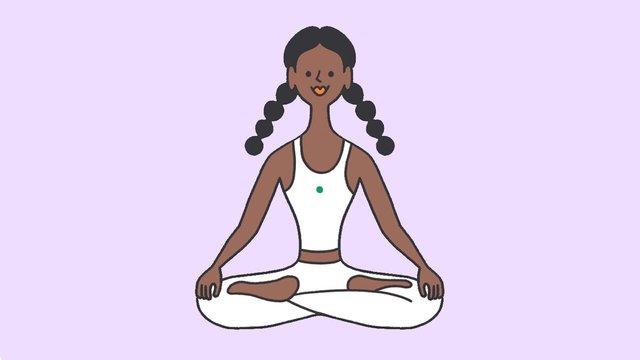Discovering the Power of Meditation: A Beginner's Guide to Finding Your Zen
Are you feeling stressed, overwhelmed and in need of some peace? Look no further than meditation. This ancient practice has been used for centuries to calm the mind, reduce anxiety and increase overall well-being. If you're new to meditation or unsure where to start, don't worry! Our beginner's guide will help you discover the power of meditation and find your zen. Get ready to take a deep breath and let go of all your worries as we explore the benefits and techniques of this transformative practice.

What is meditation?
Meditation is a practice that has been practiced for centuries by many different cultures. It is a form of relaxation and can be used to focus and calm the mind. Meditation can also help you to learn more about yourself, which can lead to greater self-awareness and happiness. There are many different types of meditation, so it is important to find one that is right for you.
Some common types of meditation include mindfulness, concentrative prayer, sitting meditation, and shamanic journeying. Each has its own benefits and should be practiced in a way that works best for you. To begin meditation, find a comfortable place to sit or recline in with your eyes closed. Try to let your body relax and simply focus on your breath. If at any time you feel uncomfortable or stressed, simply stop the practice and return to your normal activities.
The benefits of meditation are vast and include: improved mental health, stress reduction, increased concentration skills, better sleep quality, decreased anxiety levels, improved moods, stronger relationships, spiritual growth, and more! The key is finding a style of mediation that works well for you and allows you to connect with yourself on an inner level.
What are the different types of meditation?
There are many different types of meditation, each with its own benefits. Here are a few examples:
- Meditation for Stress Relief: Many people find that meditation can help relieve stress and tension. It can help you to focus and calm your mind.
- Meditative Prayer: Some people use prayer as a form of meditation. They may pray for guidance, forgiveness, or protection.
- Mindfulness Meditation: mindfulness is a type of meditation that focuses on the present moment. You are encouraged to be aware of what is happening in your body and mind, without judgement.
- Tibetan Buddhist Meditation: Tibetan Buddhism is often associated with meditation practices such as mantra repetition and deep concentration on an object or thought form called a seed syllable or deity mantra.
- Zen Meditation: Zen meditation is focused on stilling the mind and observing thoughts and feelings without judging them.
How can meditation help you?
If you're looking for a way to calm your mind and ease stress, meditation may be the right activity for you. In this beginner's guide, we'll outline the basics of meditation and show you how to begin practicing on your own.
What is meditation?
Simply put, meditation is a technique that allows you to focus your thoughts and achieve tranquility. It can be practiced in any environment—at home, at work, outdoors—and it can help improve concentration, mindfulness, and patience. Meditation has been linked with decreased anxiety and depression rates, improved cognitive function, decreased inflammation levels, and increased longevity. So whether you're looking to de-stress or boost your overall health, meditation may be the perfect activity for you!
How do I start practicing meditation?
Before beginning any new activity or practice, it's important to understand the basics first. To get started with meditation, find an area that's free from distractions (ideally an empty room) and sit comfortably with your spine straight. Start by taking a few deep breaths in and out before focusing on your breath—don't think about anything else. When your mind starts to wander off, gently bring it back to your breath by repeating "breathe in" and "breathe out." Continue this process for anywhere from 10 minutes to 30 minutes (or longer), until you feel mentally and physically relaxed. You don't have to meditate for the entire length of the session; choosing shorter sessions
Conclusion
Meditation is one of the oldest and most well-known practices for calming the mind and achieving a state of peace. It is a great way to relax after a hectic day, reduce stress levels, improve focus, increase self-awareness, and more. In this beginner's guide to meditation, we will teach you how to find your Zen by practicing short 10-minute sessions each day. If you are new to meditation or just want to explore some different ways to de-stress, give thisguide a try!
This post was selected for Curación Manual (Manual Curation)
@tipu curate
Upvoted 👌 (Mana: 2/9) Get profit votes with @tipU :)
The text of this publication shows indications of being generated by the AI /GPT, unless you check it..
Zerogpt
Openai
Visit the following publication if you want to know what Plagiarism of information is considered and phishing. Abuse Watcher